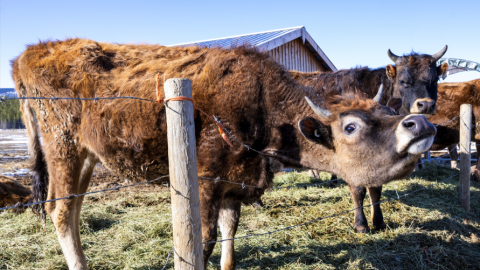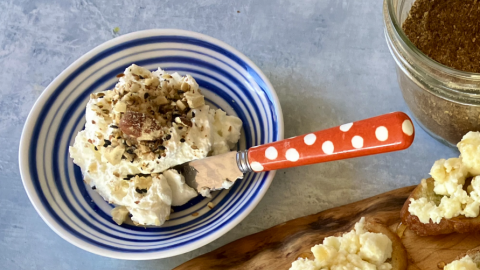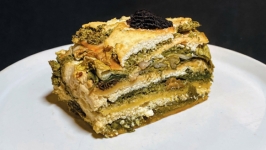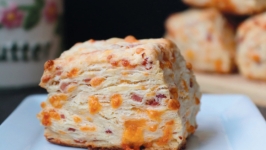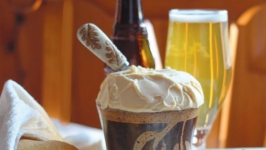Ingredients
- 8 cups whole milk
- 2−3 tablespoons lemon juice
- 1½ teaspoons kosher salt
Preparation
Pour milk into a heavy-bottomed saucepan. Set over medium heat and slowly bring to 200° F, stirring frequently so the milk doesn’t burn on the bottom of the pot.
This process will take some time—count on 20−30 minutes. When it reaches around 180° F, the milk will become frothy and begin to steam. Stir more often at this point.
Your goal is to bring the milk almost to the boiling point, but if it starts to boil, remove it from the heat.
Once the milk has reached 200° F, remove it from the heat. Stir in 2 tablespoons of lemon juice and the salt. The milk should curdle right away, but if it doesn’t, add another tablespoon of lemon juice.
Let the pot sit undisturbed for 10 minutes. After 10 minutes, the whey will have turned a yellowish color, some curds will have floated to the surface, and the larger curds will have sunk to the bottom. If the whey still looks milky, leave it to sit a little longer.
Line a strainer or colander with a few layers of cheesecloth and set it over a large bowl. Spoon the larger pieces of curd from the bottom of the pot into the strainer or colander using a slotted spoon. Pour in the remaining curds and whey down one side of the strainer rather than over the top of the curds already draining.
Gather up the corners of the cheesecloth, twist and squeeze gently to express more whey. Leave it to drain in the fridge for anywhere from 10−60 minutes; for softer cheese, choose the shorter time, and for firmer, the longer. If you find the cheese is too dry (this happened to me), stir some of the whey back into the curds. (Don’t discard the whey. See below for suggestions on how to use it.)
For ricotta, stop here. Transfer the cheese to a container, cover, and use in salads, for grilled cheese sandwiches, piled onto crostini with a drizzle of honey over the top, or combined with mozzarella and Parmesan in your go-to lasagne recipe.
For paneer, tie the corners of the cheesecloth together. Place a plate on top of the wrapped cheese, still in the strainer, and weigh down the plate with something heavy—a big squash, a 28-ounce can of tomatoes, a bowl filled with uncooked grains—whatever you have on hand. Transfer to the fridge and allow to drain for a few hours or overnight.
The finished cheese will be a firm round with a divot in the middle, ready to be cubed and used in a vast repertoire of South Asian recipes, but for starters, try saag paneer.
Ways to use the leftover whey: blitzed with berries and greens in your morning power smoothie, poured over granola, subbed for milk or buttermilk in baking, added to gravies or stir fries, and used instead of water for soaking nuts or grains. I’ve had great success marinating pork roast in whey, garlic, and Dijon mustard, boiling the marinade down to one cup or so, and adding it to pork gravy. Some people water their plants with whey, others feed it to their animals. It’s full of protein and very tasty.


